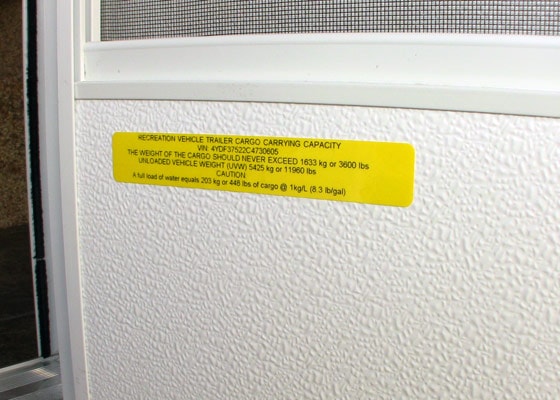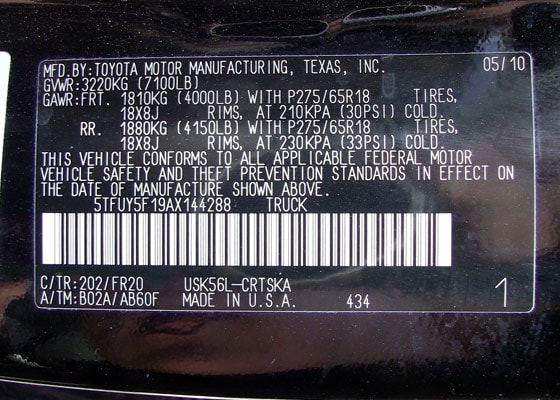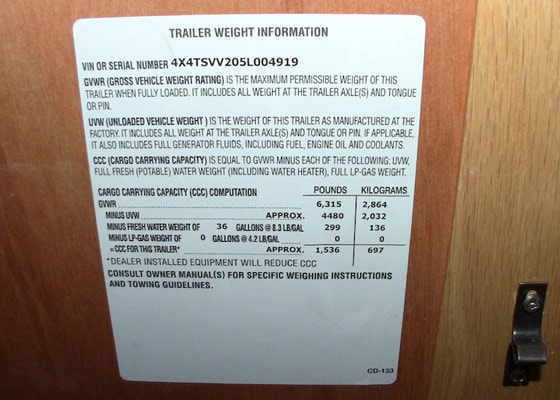RV Tow Ratings & Towing Capacity
Understanding Towing Ratings
An important step in the RV buying process is determining if the camper you want to purchase can be towed by your truck, SUV or crossover vehicle. Understanding tow ratings and towing capacity helps you pair up the right-sized RV with your vehicle.
After reviewing the information, video and pictures found on this page, terms like Unloaded Vehicle Weight (UVW), Gross Vehicle Weight (GVW), and load distribution will no longer sound foreign or technical. In fact, it's really quite simple. After learning where weight information tags are located on an RV and tow vehicle, simple subtraction is all it takes to determine towing capacity.
Vehicle Weight Terms
Getting an accurate tow rating requires some research on your vehicle and the travel trailer or fifth wheel you are looking to buy. Going this route versus an approximation helps ensure the safety of your family and mechanical health of your vehicle. Here are a few key terms to become familiar with when determining tow rating:
CGWR (Combined Gross Weight Rating) - This is the combined gross weight rating. It is the maximum allowable weight your vehicle, with cargo and passengers, and a trailer can weigh. The CGWR can be found labeled on the inside of the driver's side door.
GVWR (Gross Vehicle Weight Rating) - The maximum permissible weight of the trailer when fully loaded. It includes the maximum allowable weight at the trailer axle(s) plus the hitch (tongue/pin) weight. The GVWR is typically found labeled in pounds and kilograms on the driver's side towards the front of a trailer.
UVW (Unloaded Vehicle Weight) - The weight of a trailer as manufactured at the factory. Also known as "dry" or "shipping" weight. It includes all weight at a trailer's axle(s) and hitch.
CCC (Cargo Carrying Capacity) - US-Equal is GVWR minus the UVW and LP gas weight (Water is considered a component of cargo). Canada-Equal is GVWR minus the UVW, full fresh (potable) water weight (including the water heater) and full LP gas weight. CCC information can be found labeled on the trailer in the same area as the GVWR.
To be completely accurate, there are several more factors involved when determining tow rating. However, basic logic tells you if CGWR is less than the UVW, and especially the GVWR, it's a sound bet your vehicle is not suited to tow the RV you want to buy.
Along with reviewing your towing vehicle owner's manual, chapter 3 of the Keystone RV Owner's Manual does a nice job explaining load limits and towing considerations. A PDF version of the Keystone RV Owner's Manual is available on our website.
In addition to the Keystone RV Owner's Manual, feel free to contact Pete's RV Center with further questions on tow ratings, towing capacity, and trailer hitches.

Weight values for an RV are found on the inside of the entry door. For older RVs, they are found in a kitchen cabinet.

Weight values for a vehicle are found inside the driver's side door.

Knowing tow ratings and towing capacity helps you choose the right hitch.



